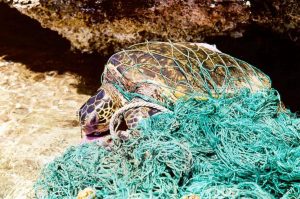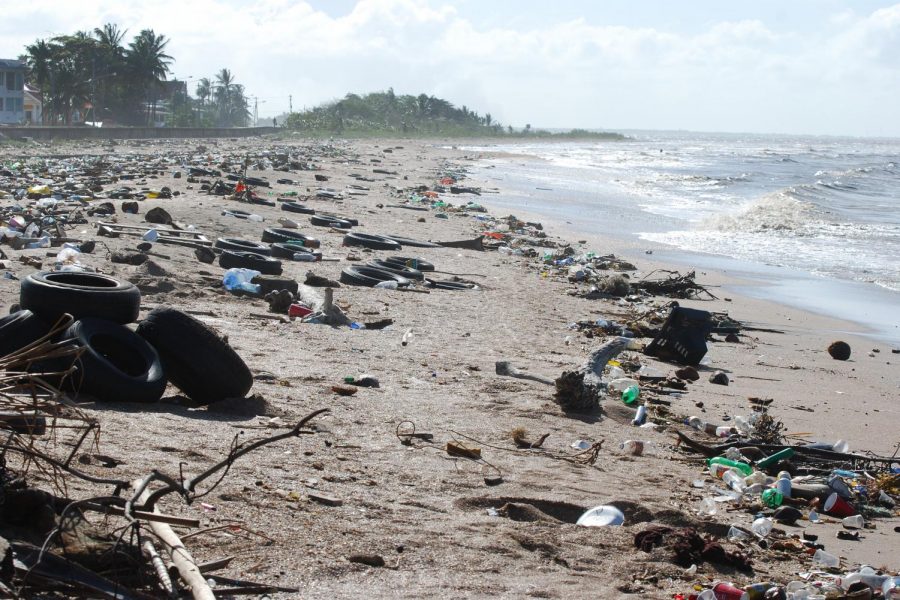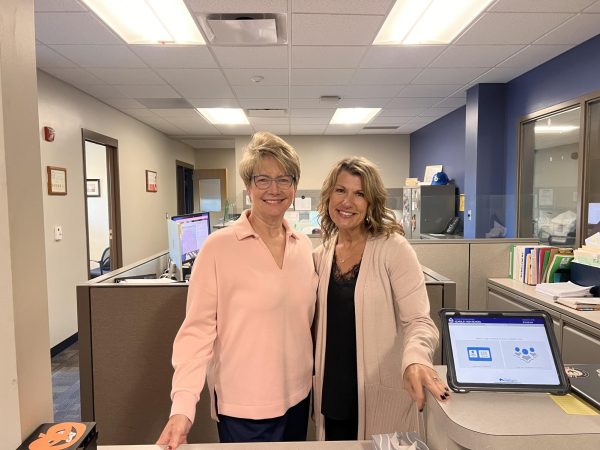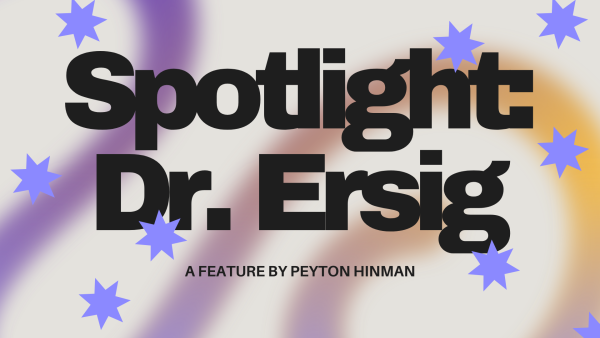Teacher, students say we should be more concerned with ocean health
IMAGE / Nils Ally / Wikimedia Commons
Marine pollution litters the coast of Guyana in 2010.
When people hear the word “ocean” they envision beautiful clear water, chirping seagulls, and warm sand between their toes.
They remember family beach trips they took as children, and how much they enjoyed staring out into the clear, beautiful water.
This image, however, may disappear soon if we do not start taking better care of our oceans.
Clear water will be an environmental characteristic of the past.
Aquatic creatures like sea turtles and dolphins will go extinct. Water resources will deplete into nothingness.

Junior Niccos Patrick is upset about the fast
decline in ocean health
Ocean health is deteriorating fast. Marine life is dying, water is being polluted, and aquatic resources are running out.
Oceans should be filled with animals and vegetation. Instead, plastic, chemicals, and human waste fill the water, and trash is becoming a common sight on beaches that should have sea shells or crabs.
Niccos Patrick, junior, thinks people should do better with treating animal habitats.
“I feel like as humans, we take advantage of our intelligence over animals in general,” Patrick said. “Aquatic animals seem to be particularly affected by human actions, though.”
Nearly 8 million pounds of plastic are dumped into oceans worldwide every year according to the Plastic Oceans Foundation.
Plastic that makes it’s way to the ocean becomes food for sea creatures, which eventually becomes food for humans. Ocean pollution is a never-ending cycle that affects every organism involved, which makes it even more vital to put an end to it.

Marine debris entangles a turtle in the Pacific Ocean in 2005.
A big culprit of ocean pollution is the microbead. Microbeads come from products like face wash, soaps, and body scrubs. While these beads exfoliate and improve people’s skin, they destroy ocean environments and food sources for undersea animals.
Ocean pollution is ruining sea creature’s lives.
Sea turtles are being suffocated by six-pack rings, chemicals are slowly destroying animals internal systems, and trash is being mistaken for food by dolphins and other animals.
Junior Madison Burroughs thinks that people can provide a better environment for sea creatures.
“We can prevent ocean pollution by recycling and not littering so the ocean isn’t filled with trash,” Burroughs said. “The ocean is filled with lots of animals that don’t deserve to live in trash.”

Madison Burroughs, junior, finds protecting aquatic animals very important.
Ocean pollution is a universal problem that numerous people are worried about.
There are many organizations across the globe doing their part to clean up oceans in an effort to lesson the damage of underwater deterioration.
Groups like the National Oceanic and Atmospheric Administration set up websites and make it easy for people to get involved in ocean cleanup.
If you’re concerned about the world’s oceans, you can find an organization that centers around the issue of conserving ocean habitats and animals.
These organizations tell you how you can help the effort whether that be through donations, email subscriptions, or meeting with fellow members of the foundation.
Mrs. Leah Thomas, biology teacher, feels that if people don’t start recognizing the issue with ocean health, the problem will only grow more until it’s catastrophic.
“I think in the future there is going to have to be a major environmental movement once people realize that we do have an effect on our planet,” Thomas said. “I just hope we humans are smart enough to make some changes earlier versus later and smart enough to figure out problems we’ve created before the effects are too drastic.”
There are many steps you can take if you want to start being more ocean-friendly.

Mrs. Leah Thomas, biology teacher, finds it important for everyone to realize the importance of ocean health.
Small things like using a reusable cup instead of plastic water bottles can immensely improve your impact on the underwater environment.
If you have extra time on your hands, you can email your senator or even talk to your local community about how minimal changes to everyday life can benefit aquatic animals and habitats greatly.
Groups concerned with animal safety like National Geographic and The Humane Society of the United States offer many different chances to make a change to your life that will benefit underwater creatures.
Thomas also offered some tips on minimizing the negative effect daily habits can have on oceans.
“At home, reduce your carbon footprint by turning off the water when you brush your teeth, carpool more, and use CFL light bulbs,” Thomas said. “Go out and enjoy the oceans if able, so you can truly appreciate them.”

Birthday: Aug. 2, 2001
Hobbies/Interests: NHS, drama club, Freshman Mentors.
Favorite Quote: "Find out who you are and do it on purpose."...

Birthday: May 11, 2000
Extracurricular activities: Newspaper
Hobbies: Playing violin, hanging with her friends and boyfriend, and horseback riding.
...






